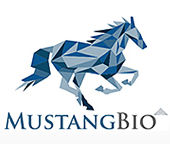|
|
|
|
|
Inactive Indication- |
Drug Highest PhasePhase 1 |
First Approval Ctry. / Loc.- |
First Approval Date20 Jan 1800 |
A Phase 1 Study to Evaluate IL13Rα2-Targeted Chimeric Antigen Receptor (CAR) T Cells for Adult Patients With Leptomeningeal Glioblastoma, Ependymoma or Medulloblastoma
This phase I trial investigates the side effects of brain tumor-specific immune cells (IL13Ralpha2-CAR T cells) in treating patients with leptomeningeal disease from glioblastoma, ependymoma, or medulloblastoma. Immune cells are part of the immune system and help the body fight infections and other diseases. Immune cells can be engineered to destroy brain tumor cells in the laboratory. IL13Ralpha2-CAR T cells is brain tumor specific and can enter and express its genes in immune cells. Giving IL13Ralpha2-CAR T cells may better recognize and destroy brain tumor cells in patients with leptomeningeal disease from glioblastoma, ependymoma or medulloblastoma.
Phase I Study of Cellular Immunotherapy Using Memory Enriched T Cells Lentivirally Transduced to Express an IL13Rα2-Targeting, Hinge-Optimized, 41BB-Costimulatory Chimeric Receptor and a Truncated CD19 for Children With Recurrent/Refractory Malignant Brain Tumors
This phase I trial investigates the side effects of chemotherapy and cellular immunotherapy in treating children with IL13Ralpha2 positive brain tumors that have come back after a period of improvement (recurrent) or do not respond to treatment (refractory). Cellular immunotherapy (IL13(EQ)BBzeta/CD19t+ T cells) are brain-tumor specific cells that may induce changes in body's immune system and may interfere with the ability of tumor cells to grow and spread. Chemotherapy drugs, such as as cyclophosphamide and fludarabine, work in different ways to stop the growth of tumor cells, either by killing the cells, by stopping them from dividing, or by stopping them from spreading. Many patients with brain tumor respond to treatment, but then the tumor starts to grow again. Giving chemotherapy in combination with cellular immunotherapy may kill more tumor cells and improve the outcome of treatment.
100 Clinical Results associated with IL-13Rα2 x CD3 x PDL1
100 Translational Medicine associated with IL-13Rα2 x CD3 x PDL1
0 Patents (Medical) associated with IL-13Rα2 x CD3 x PDL1


